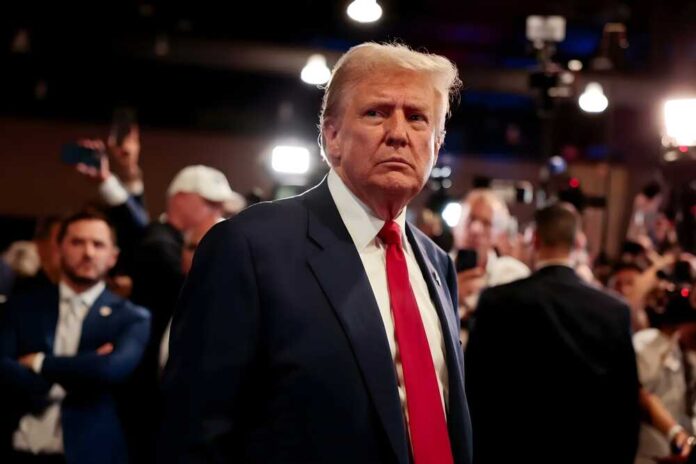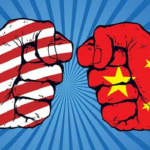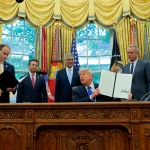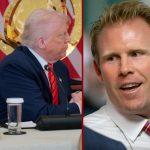(RightIsRight.co) – Considering reshaping international trade, President-elect Donald Trump’s potential invocation of the International Economic Emergency Powers Act (IEEPA) for universal tariffs could upend global economic dynamics.
This strategic maneuver, usually reserved for addressing national security threats, may signify a revolutionary shift in economic policy.
Trump is once again proving his determination to secure America’s economic interests by considering declaring a national economic emergency.
Under this plan, he could impose universal tariffs to safeguard American industries. The IEEPA maybe Trump’s weapon of choice, as it gives the president authority to regulate imports during an emergency.
Universal tariffs have long been on Trump’s radar. During his campaign, he voiced the intention to impose tariffs of at least 10% on all imports should he deem it necessary for the national interest.
Such an unprecedented use of the IEEPA underscores his commitment to these policies, which could fundamentally alter trade relationships and impact existing agreements.
Despite the intense discussions underway, Trump’s transition team has remained silent, not responding to requests for comment.
However, the administration’s exploration of other legal avenues, including specific trade law provisions, adds to the speculation that a comprehensive tariff plan could be imminent.
Trump’s advisement to impose tariffs on goods from Mexico and Canada unless issues like illegal immigration and fentanyl trafficking are addressed illustrates his broader economic strategy.
In economic terms, the report about potential universal tariffs has already stirred markets, weakening stock futures while strengthening the U.S. dollar.
Such reactions indicate the high stakes involved in this possible policy change, a move that would impact not just America but the global market. Until a final decision is made, America and its trading partners remain on edge.
The world waits to see if Trump will declare a national emergency to justify these tariffs. Using such emergency powers would be a historic pivot from traditional economic policies.
As anticipation builds, the focus remains on whether these plans will restore American economic supremacy or ignite further fractures in international relations.











